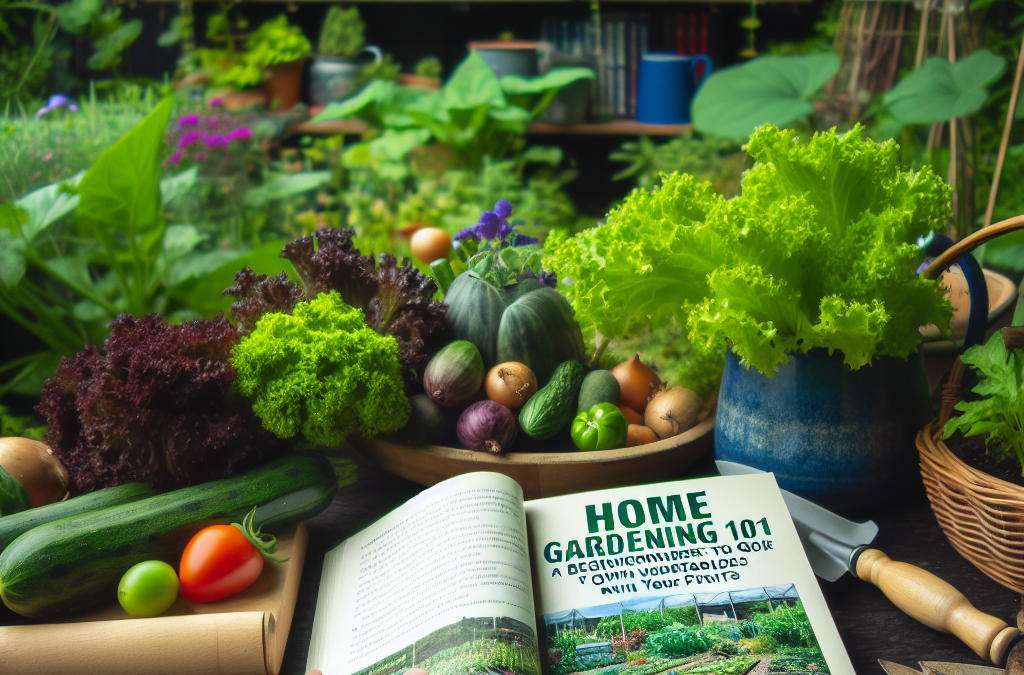Welcome to . In this blog post, we will cover everything you need to know about starting your own home garden. Whether you are a complete beginner or just looking for some tips on how to improve your existing garden, we have got you covered!
Introduction to Home Gardening
Home gardening is becoming increasingly popular as people look for ways to live healthier lives and save money on their grocery bills. By growing your own vegetables and fruits, you can ensure that you are eating fresh, nutritious produce while also reducing your carbon footprint. Plus, it’s a great way to get outside and enjoy the sunshine!
Choosing the Right Plants and Seeds
The first step in any successful garden is choosing the right plants and seeds. You should consider what type of climate you live in, how much space you have available, and which crops you enjoy eating. Some popular options for beginners include tomatoes, lettuce, spinach, radishes, and green beans. Once you have selected your plants and seeds, make sure they are high-quality and suitable for your area.
Get More Homesteading and Self-Reliance Tips. Subscribe!

Preparing Your Soil for Planting
Once you have chosen your plants and seeds, it’s time to prepare your soil for planting. This involves removing any debris from the area, loosening up the dirt with a shovel or tiller, and adding compost or other organic matter to enrich the soil. The goal is to create a loose, nutrient-dense environment where your plants can thrive.
Watering and Fertilizing Your Garden
After you have planted your seeds or seedlings, it’s essential to keep them well watered and fertilized. How often you water your garden depends on factors such as temperature, humidity, and rainfall. As a general rule, most plants require at least an inch of water per week. When it comes to fertilizer, there are many different types available, including synthetic and organic options. Choose one that is appropriate for your plants and apply according to the instructions.
Pest Control Basics
Unfortunately, no garden is immune to pests. However, by taking proactive measures, you can minimize the damage caused by insects and animals. One effective method is to use natural predators, such as ladybugs or lacewings, to control pests like aphids and mites. Another option is to use physical barriers, such as row covers or netting, to protect your plants from flying insects. Finally, if necessary, you may need to resort to chemical pesticides, but always read the label carefully and follow safety precautions.
Harvesting Your Crops
One of the best parts of home gardening is getting to harvest your own crops! Depending on the type of crop, you may need to wait several weeks or even months before you start seeing results. Be patient and don’t pick your veggies too early or else they won’t reach their full potential. When harvesting, make sure to remove only the ripe fruit or vegetable and leave the rest to continue maturing.
Maintaining Your Garden Throughout the Year
Garden maintenance doesn’t end when the harvest is over. To keep your garden healthy throughout the year, you will need to perform tasks such as pruning, mulching, and deadheading. Additionally, you may want to add new plants or adjust your layout to suit changing seasons and conditions. Don’t forget to take breaks during the winter months so you can recharge and plan for next season.
Troubleshooting Common Garden Problems
Even experienced gardeners face challenges from time to time. If you encounter common problems such as blossom drop, leaf spot, or stunted growth, don’t panic. There are likely solutions available through research or consultation with fellow gardeners. Remember, gardening is a learning process, and every mistake offers an opportunity to learn something new.
Resources for Beginner Gardeners
There are countless resources available online and offline for beginning gardeners. Here are a few recommendations to help you get started:
“Vegetable Gardening For Dummies” by Charlie Nardozzi (book)
The Spruce website (online resource)
YouTube tutorials (video content)
We hope this guide has given you all the information you need to start your very own home garden. Happy planting!



